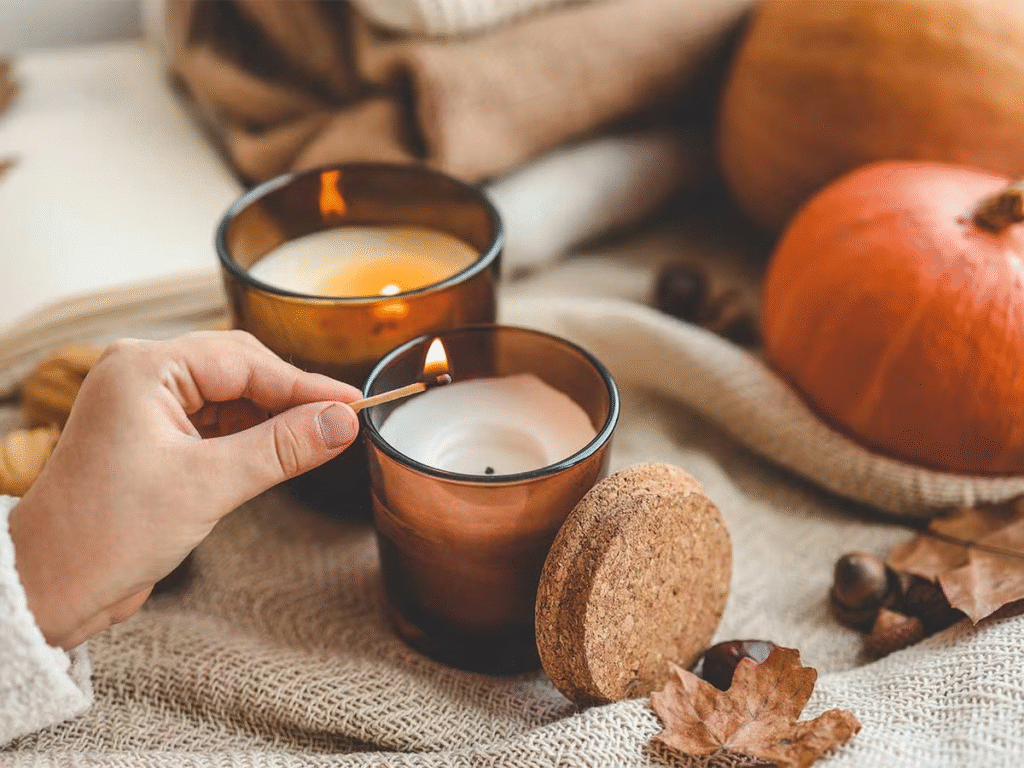We often think of cancer as a distant threat—something that comes from genetics, outside pollutants, or sheer bad luck. But what many people don’t realize is that the very homes we live in every day can quietly harbor health hazards, especially as we grow older and spend more time indoors.
While modern life brings us comfort, it also brings synthetic materials, chemical exposure, and hidden carcinogens. From scented candles to everyday receipts, these seemingly harmless items can impact our well-being in ways we don’t always notice.
Here are six everyday objects that may increase your cancer risk or disrupt your health—and what you can do to protect yourself and your loved ones.
1. Scented Candles and Air Fresheners: A Fragrant Risk
They smell lovely, don’t they? A lavender candle in the bedroom or a citrus air freshener in the bathroom can make your home feel cozy and clean. But beneath those sweet scents can lie dangerous chemicals.
Many scented products contain limonene (used for that lemony aroma), which can turn into formaldehyde when exposed to air. Formaldehyde is a known carcinogen that has been linked to lung cancer, breast cancer, liver toxicity, and respiratory irritation—especially with regular exposure.
Another culprit is phthalates—chemicals that help prolong a fragrance. They are endocrine disruptors, which means they interfere with hormone balance. This can lead to reproductive issues, increased cancer risk, and complications during pregnancy.

Safer choice:
Use natural ventilation, open windows when possible, and choose unscented or essential oil-based alternatives. If you use candles, select soy or beeswax varieties and burn them in well-ventilated spaces.
2. Air Humidifiers: Breathing Easy—Or Breathing Bacteria?
Humidifiers are a wintertime favorite for many, especially those battling dry sinuses or irritated skin. But without proper cleaning, these devices can become breeding grounds for bacteria and potentially harmful microorganisms.
Research has shown that even when using distilled or purified water, bacteria can grow inside humidifier tanks overnight. Harmful pathogens like Legionella, Pseudomonas, and Streptococcus pneumoniae can circulate through the air, leading to lung infections, sinus issues, and even pneumonia.
Protect yourself:
Thoroughly clean your humidifier’s tank every other day using warm, soapy water and let it dry completely before refilling. Replace filters regularly, and never let water sit stagnant for more than 24 hours.
3. Dry Cleaning Chemicals: Clean Clothes, Dirty Truth
We all love the look and feel of a freshly dry-cleaned blazer or silk blouse—but many don’t realize that the chemicals used in traditional dry cleaning are toxic.
The main chemical is perchloroethylene, or “perc,” which is a petroleum-based solvent and a probable human carcinogen. Long-term exposure to perc is linked to esophageal, uterine, and bladder cancers. Even short-term exposure can cause dizziness, nausea, headaches, and skin irritation.
Simple safety tips:
- Always remove plastic coverings as soon as you bring clothes home.
- Air garments outdoors or in a well-ventilated area for at least 3–4 hours before storing them in your closet.
- Consider using eco-friendly or “green” dry cleaning services that don’t rely on harmful solvents.
4. Cash Register Receipts: A Paper Trail of Chemicals
Those little slips of thermal paper from the grocery store or pharmacy? They may seem harmless, but many are coated with bisphenol A (BPA) or BPS—both of which are endocrine-disrupting chemicals.
Exposure to BPA has been associated with:
- Hormonal imbalances
- Early puberty
- Breast and uterine cancer
- Diabetes and obesity
- Birth defects and infertility
The danger lies in frequent contact. Holding, folding, or even storing receipts in your wallet can lead to BPA absorption through the skin.
Protect your health:
- Handle receipts by the unprinted side, or wear gloves if you’re handling them frequently (e.g., as a cashier).
- Say “no receipt, please” when possible.
- Never store receipts near food, and wash your hands after handling them.
5. Hairbrushes: A Hidden Hive of Bacteria
You use it every day—but how often do you clean it?
Hairbrushes can collect not just hair and oil, but also dead skin cells, dirt, and bacteria. Over time, this buildup can lead to scalp irritation, dandruff, folliculitis (infected hair follicles), and even hair loss.
Dirty brushes are particularly concerning if shared between people or if used while having a cut or abrasion on the scalp.

Easy cleaning routine:
- Remove hair from your brush after each use.
- Soak it in warm, soapy water for 10–15 minutes weekly.
- Use an old toothbrush to scrub between bristles.
- Let it dry fully in sunlight, which helps disinfect naturally.
6. Remote Controls: Small Device, Big Bacteria
They sit in our living rooms, bedrooms, and hotel rooms—but remote controls are among the dirtiest objects we touch.
One study published in the Journal of Infection Prevention found that TV remotes can harbor Staphylococcus aureus, E. coli, and pneumococcus—all bacteria linked to skin infections, pneumonia, stomach bugs, and urinary tract infections.
And hotel remotes? They can be downright filthy, often overlooked during cleaning.
Protect your household:
- Wipe remotes regularly using alcohol-based disinfecting wipes or a soft cloth soaked in diluted rubbing alcohol.
- When traveling, sanitize the hotel remote or use a plastic sandwich bag as a barrier.
- Wash your hands after eating or touching high-use items like remotes or doorknobs.
A Healthy Home Starts With Awareness
Our homes are meant to be our safe spaces—but comfort and cleanliness don’t always go hand in hand.
The truth is, many common household items can carry hidden cancer risks or act as endocrine disruptors. But by staying informed and taking simple, proactive steps, we can protect ourselves and create a healthier environment—especially in our golden years.
- Ventilate your home
- Clean regularly
- Read labels
- Handle everyday objects mindfully
Remember: It’s not about living in fear.
It’s about living with awareness and intention.
Because every small change you make today can protect your health—and your family’s—for years to come.





